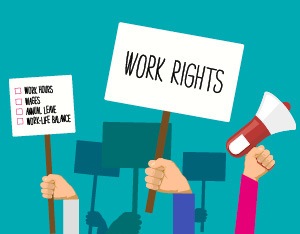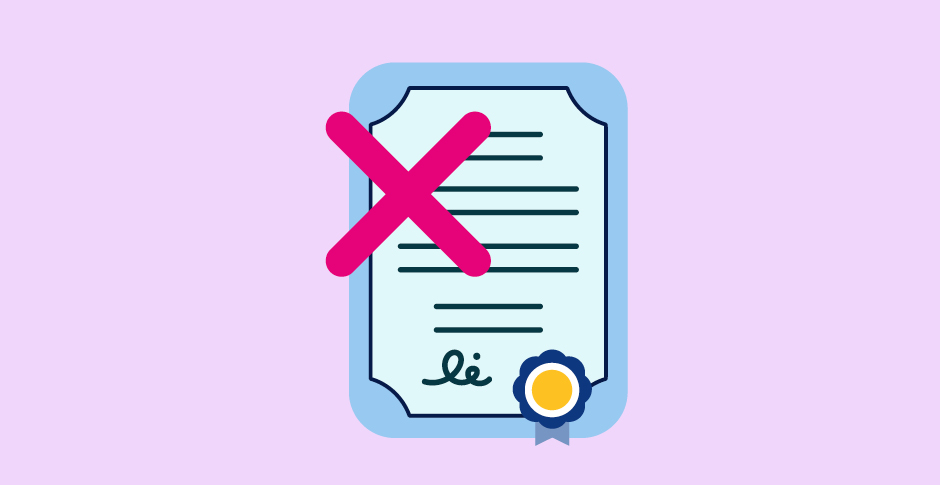If you’re considering a new job, you might be more interested in what the role itself involves rather than what kind of employee you’ll be hired as. But the benefits, entitlements and conditions of a job can differ depending on whether you’re a casual worker or a part-time or full-time employee. We’ve asked an expert employment lawyer to spell out the different rights each role has, and what you need to consider when deciding on a job.
Full-time and part-time employees essentially have the same rights. The only difference is that part-time employees work fewer hours than full-time employees.
For casuals, however, it’s different. Casuals are viewed by the law as only being employed on a one-off basis for the duration of their shifts. This means conventionally speaking, if you are a casual worker and you are in between shifts, you’re not technically considered to be an employee. This can have an impact on your working conditions, such as your benefits, entitlements and rights.
Hours
According to the Employment Relations Act, all workers must have an agreement with their employer that states the hours they’ve agreed to work. “This includes the number of hours, days of work, your start and finish times, and whether there is a requirement for you to be available for extra hours,” says Jaenine Badenhorst, an associate lawyer with Rainey Collins.
- Full-time
“Full-time hours will be whatever an employment agreement sets down as a normal week or ordinary day,” Badenhorst says. “Full-time hours may vary from industry to industry.” For example, shift workers and emergency response workers might work more than eight hours per day, but less days per week, or work one week on and one week off.
- Part-time
Part-time employees are usually permanent employees who work less than full-time hours.
- Casual
Casual employees are employed ad hoc and as needed. “This means you have no guaranteed hours,” Badenhorst says. “Being a casual employee means your employer can offer you hours on an “as needed” basis, or none at all.” As a casual employee you can’t demand hours, but you don’t have any obligation to work the hours you’re offered. “An agreed hours clause in a casual employment agreement might indicate when you could be offered work,” says Badenhorst. “For example, a casual employee who is a café server is likely to be offered hours of work during the café’s usual opening hours.”
Wages
- Full-time and part-time
Full-time and part-time employees earn a consistent wage based on their ordinary hours of work. According to the Minimum Wage Act 1983, all employees are entitled to be paid at least the minimum hourly rate. “At present the minimum hourly rate is $17.70 per hour, but the government can change this from time to time,” Badenhorst says,
Badenhorst says lower minimum hourly rates will sometimes apply, for example if you’re training. In some situations, an exemption will apply, such as for certain apprenticeships.
- Casual
Casual employees are usually paid on an hourly basis.
Benefits and entitlements
All employees are entitled to certain benefits set out in legislation—regardless of whether they’re casual, part-time or full-time employees. Some examples of key employee rights include:
- access to mediation services to assist with resolving any employment disputes
- to be dealt with in good faith
- to have a written employment agreement
- to be kept safe from harm
- to have access to wage records
- the right to leave.
“Sometimes, employers fail to appreciate their obligations to casual staff, for instance, by failing to put in place a written employment agreement, neglecting to keep accurate wages records, or not dealing with casual employees in good faith,” Badenhorst says.
The amount and type of leave you qualify for will vary, depending on the type of employee you are classified as.
Sick leave: To qualify for sick leave, you must:
- still be employed; and
- have been employed continuously for the previous 6 months; and
- worked an average of 10 hours per week, and
- worked at least one hour in every week, or 40 hours in every month.
“The requirements set out at points one and two can generally be satisfied by all types of employees,” says Badenhorst, “however, part-time or casual staff will need to look carefully to see whether they meet the requirements set out in points three and four.”
It’s likely that most casual staff will not be entitled to sick leave, unless they have been offered hours on a regular basis.
Annual leave: To qualify for 4 weeks of annual leave, you must be employed continuously for the previous 12 months.
Full-time/part-time: If you work regular hours then you’re entitled to four weeks leave in accordance with your usual hours and pay— regardless of whether you’re full or part-time. “If you work irregular hours or have worked overtime, then it may be more complicated to work out your remuneration over the 4 weeks of annual leave,” Badenhorst says.
Casual: If your hours are intermittent and irregular, then the employer may instead pay your annual leave entitlement to you on a “pay-as-you-go” basis. “That means, in lieu of accruing annual leave, your employer can pay an additional 8 per cent of your earnings each time you are paid,” Badenhorst says. You must agree to this in your employment agreement, and the annual leave must be clearly identified as a separate component of your pay.
Dismissal
Anyone can be dismissed, but only if there’s a good reason to do so, and as long as a fair process has been followed. “Good reason to dismiss an employee most often results from misconduct or poor performance or redundancy,” Badenhorst says.
- Full-time/part-time
If you’re dismissed, you may be entitled to notice or payment in lieu of notice. “If you are dismissed for serious misconduct you will not be entitled to notice,” Badenhorst says. “The period of notice you are entitled to will depend on the terms of your employment agreement.”
- Casual
“You might find it more difficult to enforce your rights, because an employer can simply stop offering you work (for instance due to alleged misconduct or poor performance) without telling you about it,” Badenhorst says. “You may not even be aware of the allegations, or may find it hard to prove that the allegations have resulted in no further work being offered.”
Superannuation
- Full-time/part-time
When you first start a new job, in most cases you will automatically be enrolled into a KiwiSaver scheme—a voluntary, work-based savings initiative—unless you let your employer know you want to opt out. If you’re working few part-time hours and not earning a lot you may choose to opt out.
- Casual
Badenhorst says your type of employment won’t stop you from joining or contributing to a KiwiSaver scheme. “However, if you are casual you will not be automatically enrolled unless you have been working 28 days continuously, or you let your employer know that you want to opt in,” she says.
Flexibility
Everyone has the right to request flexible work arrangements. “Any employee can request changes to their hours, days, place of work, and how work is managed,” Badenhorst says. “Your employer must consider the request and can only refuse the request on certain grounds related to the business.”
Grounds for refusal include: inability to re-organise work among existing staff, inability to recruit additional staff, detrimental impact on quality or performance, and being unable to meet customer demand.
Badenhorst says it’s probably more likely that an employer would agree to flexible work arrangements if you are in a permanent position, whether it’s full-time or part-time. “The reason for this is that casual employees are usually there to provide additional cover during busy times,” she says. “Your employer may already be stretched thin and unable to accommodate flexible working arrangements.”
Casual: “Casual employees actually already have a lot of flexibility built into their employment agreement because they can simply refuse to do work that does not suit them,” Badenhorst says. “A casual employee may still, however, ask for flexibility in terms of the place of employment, or something else.”
Other considerations
If you want lots of control over when you work and the number of hours you commit to a role, then a casual position may be right for you. “The downside of casual employment is that you may not have a reliable and predictable source of income,” Badenhorst says. “This may be problematic where you need to show evidence of a reliable source of income, such as when you are applying for a home loan.”
Part-time work can be great if you don’t want to, or can’t, work full-time hours each week. “Part-time work is still permanent and allows you predictability and security in terms of ongoing employment and income,” Badenhorst says.
Full-time work provides both job security and a reliable source of income. “Full-time employees are still able to request flexible working arrangements,” Badenhorst says. “The downside of full-term employment is that employees are committed to spending more hours at work, on an ongoing basis.”
Before you take on full time, part-time or casual work, it’s important to know what’s involved in terms of your rights, benefits and the flexibility you have. If you’re unsure about or need help with any of these issues, it’s best to contact a specialist employment lawyer.
Information provided in this article is general only and it does not constitute legal advice and should not be relied upon as such. SEEK provides no warranty as to its accuracy, reliability or completeness. Before taking any course of action related to this article you should make your own inquiries and seek independent advice (including the appropriate legal advice) on whether it is suitable for your circumstances.



